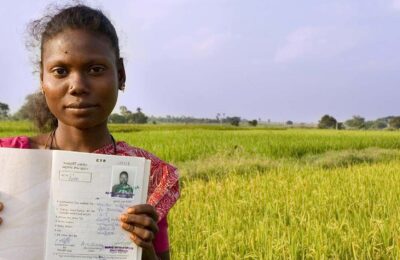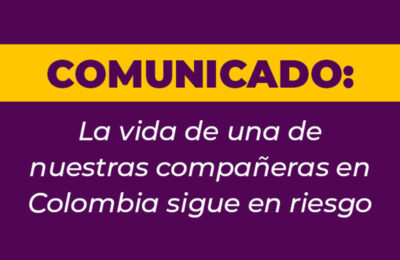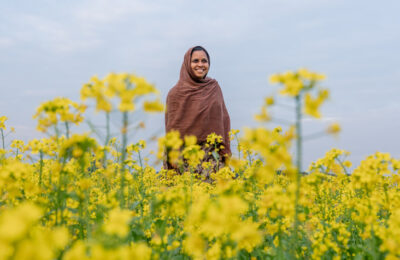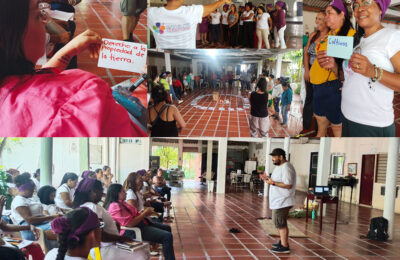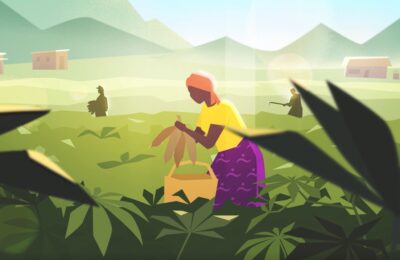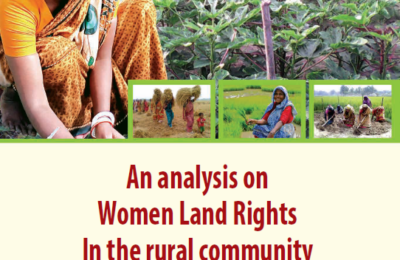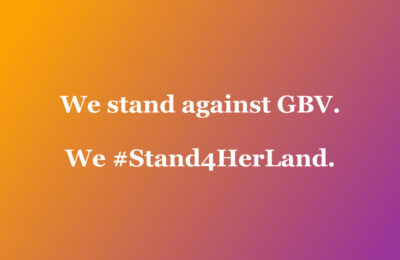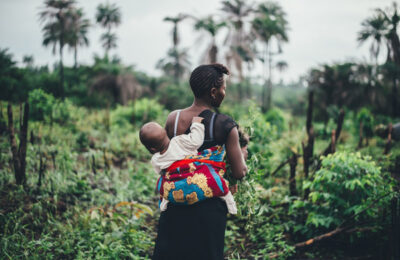W7 Takeover: What commitments would G7 Leaders make if gender equality advocates had their say?
Equal Measures 2030 featured S4HL Global Advocacy Director Esther Mwaura-Muiru in a survey of gender equality advocates, asking these leaders how they would urge the G-7 countries to fulfill commitments to women’s rights and empowerment.
To Avert the Next Humanitarian Crisis, Empower Women and Girls
It is time to honor women as guardians – of the soils that grow our food and the forests that stand as a bulwark against climate change. To honor them is to support their work, learn from their experiences, listen to their wisdom, and include them at all decision-making tables.
Statement: The life of one of our colleagues in Colombia is at risk
We reject the violence that Jemima and the women of the cabildo have faced after making denunciations against an aggressor. We decry the danger to which they are exposed and call for urgency in taking the protective measures that this case deserves.
Land is power: act now to end inequality
Equal inheritance rights are a path toward achieving an equitable, hopeful future; they are positively associated with higher levels of women’s entrepreneurship and can lead to economic empowerment. Read Monoara's story and how equal inheritance rights can help us achieve transformative change now.
Our experience at the first module of the Feminist School
ZAMBRANO, COLOMBIA — Darlis Rojas and the Communication & Research Committee of the Colombian Coalition share their experiences from the first Feminist School workshop on rights to land and territory.
VIDEO: It’s Time to Stand for Her Land
Learn more about the movement to strengthen women's land rights, and to secure a better future for people and planet.
Report: An analysis on women’s land rights in the rural communities of Bangladesh
This assessment examines identification of legal and policy gaps regarding women’s access to land rights, social norms, and behavioral practices among different communities.
16 Days of Activism against Gender-based Violence
The denial of women’s land rights is a form of gender-based violence. Learn more about the action we're taking and what you can do to stand up and speak out against GBV.
Food security, climate resilience hinge on women’s land rights
Via Diplomatic Courier — At COP27, Stand for Her Land’s Esther Mwaura Muiru and former U.S. Secretary of Agriculture Dan Glickman speak about climate resilience and food security and how women’s land rights are an essential part of the solution at the intersection of both issues.
Sénégal-Femmes rurales : Lancement de la campagne “Défendre sa terre”
Un résumé du lancement en novembre de la campagne Stand for Her Land au Sénégal a été diffusé par Medi1TV Afrique. // A summary of the November launch of the Stand for Her Land Campaign in Senegal was aired by Medi1TV Afrique. (In French)


